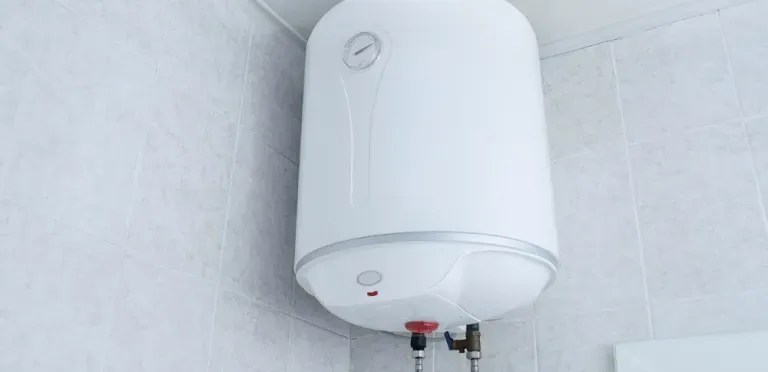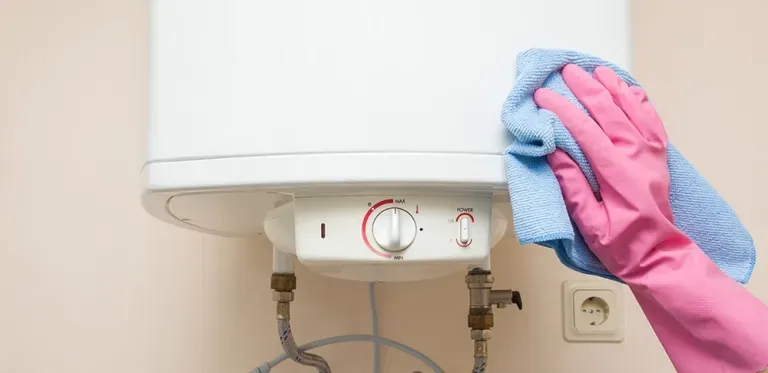Hot Water Heaters: A Guide to Maintaining Your System

Hot Water Heaters: A Guide to Maintaining Your System
Do you find it hard to start your day without a nice, hot shower? Or perhaps you enjoy relaxing in a hot bath after a long day at work? If so, you can probably agree that hot water heaters are an essential part of daily life. From washing dishes to doing laundry, hot water is required for many household tasks.
However, have you ever stopped to consider the importance of proper maintenance for your hot water heater? Regular maintenance is necessary to keep your hot water heater running at optimal performance. Neglecting maintenance can lead to issues such as decreased efficiency, unexpected breakdowns, and even safety hazards.
That's why we're here to provide you with a comprehensive guide to water heater maintenance. Whether you have a tankless, storage tank, or heat pump water heater, we'll cover all the basics to keep your system running smoothly. So, read on as we dive into the world of hot water heater maintenance!
Understanding Your Hot Water Heater
Water heaters are an essential part of any modern household. They provide us with the comfort of hot water for cleaning, cooking, and personal hygiene, making them an integral part of our daily lives. However, it's easy to take them for granted until they stop working or require repairs. That's why it's crucial to understand the different types of systems out there, while also recognising which issues you can resolve and when it's time to call in the professionals. Regardless of the type of hot water heater you have, its basic components typically consist of a tank (if applicable), heating element or burner, thermostat, and various valves and pipes. Regular maintenance of these components is crucial for optimal performance and longevity.

Tankless Water Heaters
First, let's talk about tankless water heaters. These units heat water on demand, which means they don't require a storage tank. Instead, cold water flows through a heat exchanger, which quickly heats the water before it is delivered to your faucet. Tankless water heaters are energy-efficient and occupy less space than traditional storage tank models. However, they may require more frequent maintenance to prevent the buildup of minerals and debris in the heat exchanger.
Storage Tank Water Heaters
Storage tank water heaters, on the other hand, use a tank to store hot water. The tank is heated by an element or burner, and hot water is then delivered to your faucets as needed. These systems are reliable and generally require less maintenance than tankless models. However, sediment buildup in the tank can reduce efficiency and lead to premature failure.
Heat Pump Water Heaters
Finally, heat pump water heaters use electricity to move heat from the air or ground to heat water. These units are highly efficient and can save you money on energy bills. However, they require specific installation and maintenance procedures, so it's important to work with a qualified water heater service provider.
The Benefits of Regular Hot Water Heater Maintenance
Now that we've covered the basics of hot water heater systems, let's consider the regular maintenance these systems require. Regular maintenance of your hot water heater can have a range of benefits, both in terms of performance and safety. Let's take a closer look at the advantages of preventative maintenance on a hot water heater.

Firstly, regular maintenance can improve energy efficiency and overall performance. Sediment and mineral buildup can accumulate in the tank, reducing its ability to heat water effectively. By flushing the tank and cleaning the heating elements, you can help your hot water heater run more efficiently, which can save you money on energy bills in the long run.
In addition to energy savings, regular maintenance can also extend the lifespan of your hot water heater. When components are neglected, they are more likely to wear out and require costly repairs or replacement. By keeping up with routine tasks like checking and replacing the anode rod, you can prevent corrosion and extend the life of your system.
Perhaps most importantly, regular maintenance can reduce the risk of unexpected breakdowns and potential safety hazards. In time, pressure valves and other safety features can become compromised, leading to leaks or even explosions in extreme cases. By having a professional water heater service provider perform routine maintenance tasks, you can rest assured that your system is operating safely and at optimal performance.
Overall, investing time and effort in regular hot water heater maintenance can have a range of benefits for both your wallet and your peace of mind.
DIY Hot Water Tank Maintenance Tips
Performing routine maintenance on your hot water heater doesn't always require a professional. There are some DIY hot water tank maintenance tips that you can perform yourself to keep your system running smoothly.
Inspecting and Cleaning the Heating Elements
Firstly, inspecting and cleaning the heating elements is crucial for maintaining energy efficiency. If left untouched, mineral buildup can accumulate on the elements, reducing their ability to heat water effectively. By turning off the power supply and removing the elements for cleaning, you can improve the efficiency and longevity of your hot water heater.

Flushing The Tank To Remove Built Up Sediment
Another important maintenance task is flushing the tank to remove sediment buildup. Without thorough cleaning, sediment can accumulate at the bottom of the tank, reducing the amount of available hot water and reducing efficiency. By draining the tank and flushing it out with a garden hose, you can remove sediment buildup and improve the overall performance of your system.
Checking and Replacing the Anode Rod
Checking and replacing the anode rod is another important maintenance task. Anode rods are designed to protect the tank from corrosion by sacrificing themselves to the corrosive elements. Over time, they can become depleted and require replacement. By checking the anode rod regularly and replacing it when necessary, you can prevent corrosion and extend the life of your hot water heater.
Inspecting and Adjusting The Pressure Relief Valve
Finally, inspecting and adjusting the pressure relief valve is crucial for safety. The pressure relief valve is designed to release pressure in the tank if it becomes too high, which can prevent explosions and leaks. By testing the valve regularly and adjusting it if necessary, you can ensure that your system is operating safely.
Bolster Your Hot Water System Today
By recognising the specific requirements of your system and regularly carrying out the most essential maintenance tasks, you can improve the energy efficiency, lifespan, and safety of your system. However, it's important to call in an experienced and licensed plumbing team should you require any specialised assistance to resolve any further problems. These experts can provide you with an effective solution that keeps your hot water running when you need it most.